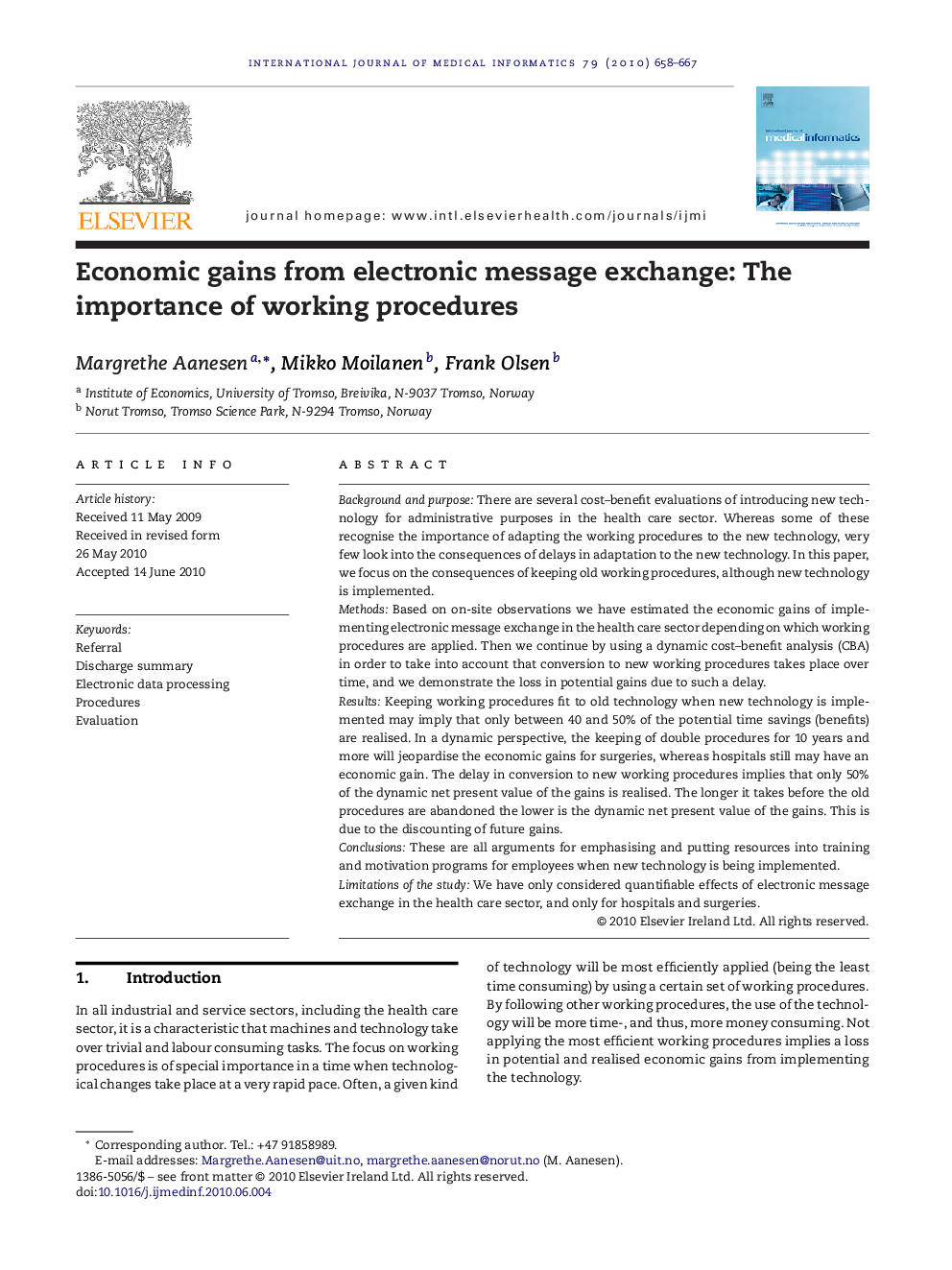| Article ID | Journal | Published Year | Pages | File Type |
|---|---|---|---|---|
| 516502 | International Journal of Medical Informatics | 2010 | 10 Pages |
Background and purposeThere are several cost–benefit evaluations of introducing new technology for administrative purposes in the health care sector. Whereas some of these recognise the importance of adapting the working procedures to the new technology, very few look into the consequences of delays in adaptation to the new technology. In this paper, we focus on the consequences of keeping old working procedures, although new technology is implemented.MethodsBased on on-site observations we have estimated the economic gains of implementing electronic message exchange in the health care sector depending on which working procedures are applied. Then we continue by using a dynamic cost–benefit analysis (CBA) in order to take into account that conversion to new working procedures takes place over time, and we demonstrate the loss in potential gains due to such a delay.ResultsKeeping working procedures fit to old technology when new technology is implemented may imply that only between 40 and 50% of the potential time savings (benefits) are realised. In a dynamic perspective, the keeping of double procedures for 10 years and more will jeopardise the economic gains for surgeries, whereas hospitals still may have an economic gain. The delay in conversion to new working procedures implies that only 50% of the dynamic net present value of the gains is realised. The longer it takes before the old procedures are abandoned the lower is the dynamic net present value of the gains. This is due to the discounting of future gains.ConclusionsThese are all arguments for emphasising and putting resources into training and motivation programs for employees when new technology is being implemented.Limitations of the studyWe have only considered quantifiable effects of electronic message exchange in the health care sector, and only for hospitals and surgeries.
